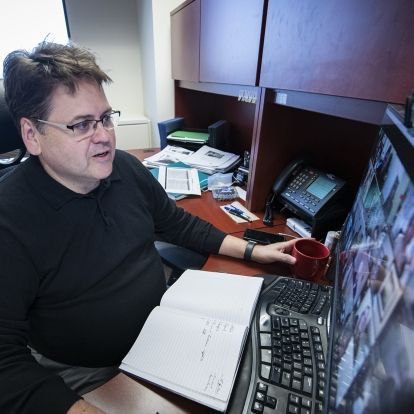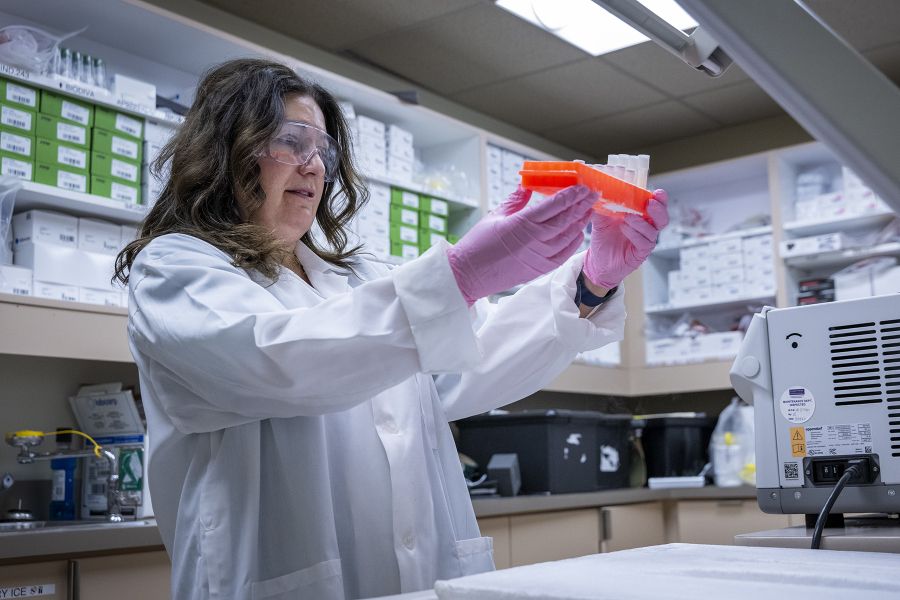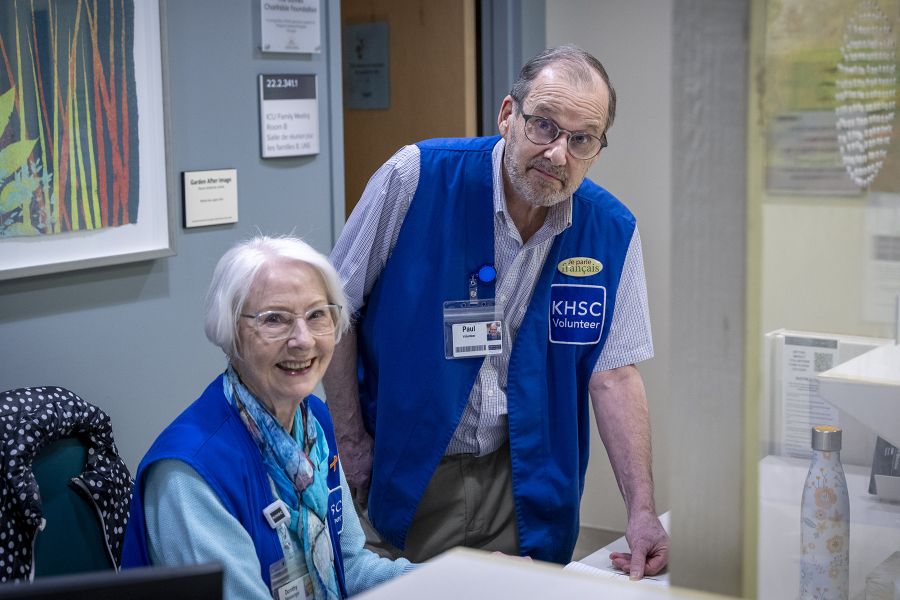Effective immediately masking is required for everyone when present on all inpatient units, in the Emergency Department (ED), the Urgent Care Centre (UCC), and the Children’s Outpatient Centre (COPC).

When crisis strikes at Kingston Health Sciences Centre (KHSC) – from floods to cyber-attacks, and everything in between - the organization flips into a mode of operation called Incident Command; a structure that allows for quick response to navigate through challenges like these as smoothly as possible.
Typically this is something that would last a day or two, maybe a week, until the crisis at hand was resolved. Troy Jones has been at the helm of KHSC’s most recent Incident Command structure, which has been operating for an unprecedented 14 months (and counting) since the onset of the global COVID-19 pandemic.
“No other crisis that I’m aware of has impacted our staff and community in every single aspect of their life,” says Troy, reflecting on what makes leading this particular command mode so unique. “We could get through a flood cleanup and go home and life is back to normal, which is not the case at all right now. Despite stressors like finding childcare, aging parents, being isolated from family, our people are still showing up which speaks to their calling and commitment.”
Not one to back down from a good challenge, Troy also notes that the integration of KHSC was one of his most rewarding initiatives to be a part of. Having shared roles at each hospital prior to integration, he was intimately familiar with what it would take to unite the two hospitals.
“The big challenge was creating fertile grounds for an integrated KHSC,” says Troy on the process of integrating KGH and HDH. “It’s sort of like dating – you don’t just meet someone and instantly get married. There is a relationship that has to develop, first. I have a lot of pride about some things that I worked on when the while the two hospitals were transitioning into a true partnership.”
Troy is days away from retiring from his role as Incident Commander and Chief Operating Officer for KHSC. What started as a six-month contract as a Junior Data Analyst evolved into a 25 year career, landing roles like manager of clinical information systems, and Chief Information Officer along the way.
“For me it feels very natural, once you put in 25 years it’s time to try something else,” says Troy on his decision to step back. “Everyone asks if I won the lottery and I had to tell them that I didn’t– but lately, I think ‘maybe that’s not true, maybe I did win the lottery.’ It’s hard to leave people that you care so much about. I’ve worked with some really bright people and we have done some incredible things.”
Gallery


Troy Jones has been at the helm of Incident Command for the past 14 months, capping off a 25 year career with KHSC.



